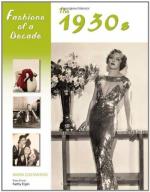|
This section contains 211 words (approx. 1 page at 300 words per page) |

|
The painful transition from an industrial to a consumer economy in the 1930s was accompanied by an equally painful shift in the economic philosophy of American business. Investor confidence remained low throughout the decade because many businessmen, wedded to the economic axioms of the 1920s, had little faith in the new economic philosophies that were developed by the end of the 1930s. These older economic axioms, enshrined in what President Herbert Hoover called the "American System," assumed a degree of automatism to the marketplace that simply did not exist. Partisans of the American System waited for the automatic mechanism of the marketplace to restore prosperity after the crash. When it did not, investor confidence plummeted still further. But the new economic philosophy of President Franklin Roosevelt's New Deal also failed to reassure investors. Devaluation of the dollar, reciprocal trade arrangements, government oversight of finance, welfarestate protection for workers...
|
This section contains 211 words (approx. 1 page at 300 words per page) |

|




